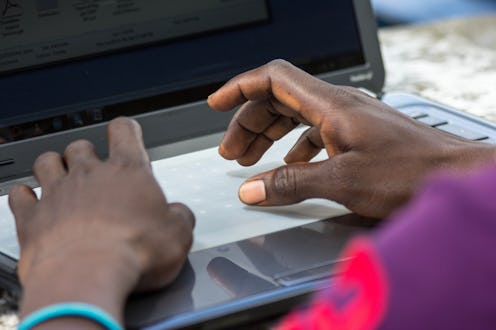Books
15 Literary Sign-Offs to Smarten Your Email

The art of the email salutation isn’t easy to master. If you're anything like me, you've tried to substitute in something else — a sign-off that dazzles the receiver with its wit and originality. But it doesn't always work, and instead falling flat, forfeiting to a convenient (and let’s face it, a bit tired) salute — “Thank you,” or “All the best,” or “Kind regards” — often will have to do instead.
According to one New York Times article, “The Death of Letter-Writing,” we should dash off emails as hastily as possible, reserving our time and energy for the real literary work. Yet, as a writer, sometimes it seems like all I write for days on end are emails — they’re one of the few opportunities I have to write something inventive and original. At the same time, as a working writer, I’m all about shortcuts.
So, rather than slaving daily to craft personalized salutations, I pilfered them from literature. Some I lifted from letters penned by literary masters. Some I filched from contemporary novels. Some are entertaining, wonky, or just plain inappropriate. I encourage you to try them out, and, if nothing else, crack some grins on the faces of those receiving these gracious finales.
Dracula by Bram Stoker
Your ever-loving,
This subtle twist on the classic “Yours always” will demonstrate your flare for theatrics. And when the topic comes up in conversation (as you’re boasting about all the compliments you’ve received), you can relay this salutation’s surprisingly gothic origins.
Poor Folk by Fyodor Dostoyevsky
Your most humble servant and most faithful friend,
The salutation “Your obedient servant” came up so many times in my research that I began to doubt its sincerity. The elaboration in this version dispels any hints of sarcasm, though you could spin it that way too, among friends.
Lolita by Vladimir Nabakov
Yours expecting,
This lovely and succinct salutation has a variety of potential applications — depending on how the reader perceives your “expectations.”
Frankenstein by Mary Shelley
Adieu! take care of yourself; and, I entreat you, write!
Nothing seasons a bland email salutation quite like antiquated punctuation!
Lady Susan by Jane Austen
With best love &c.
You could substitute “love” for another, more PC word like “wishes” in professional settings. The real star of this salutation is the unconventional (and thought-provoking, I think) rendering of “etc.”
Letters from Tolstoy by Leo Tolstoy
I kiss you.
I punch you. I kick you. I adore you. I appreciate you. This salutation gets right to the heart of what you want to say; there’s nothing generic about it.
Alias Grace by Margaret Atwood
Your old friend and erstwhile companion,
Two salutations in one! Be careful with this one, though. “Erstwhile” means former or previous — if you send it to a current friend, you might have some explaining to do.
The Return of the King by J.R.R. Tolkien
May your doom be other than mine, and your treasure remain with you to the end!
Send this salutation to coworkers when you want to (hilariously) aggrandize small, work-related tasks like going to the bank or post office.
Pastoralia by George Saunders
You bastard.
Don’t write “Best” or “Thank You” among friends when this is what you really mean. NSFW.
“The Sandman” by E. T. A. Hoffman
A thousand greetings, etc.
The tone of this salutation escapes me — is it facetious? exhausted? You might take or leave the “etc.” depending on your mood.
Jack Kerouac and Allen Ginsberg: The Letters ed. by Bill Morgan
A tender adieu.
Heartwarming, isn’t it? Leave it to the poets to slip a little French into their greetings.
One Art by Elizabeth Bishop
and my love+
The symbol used in the original text couldn’t be replicated on my keyboard, but I think the “+” preserves the idea by creating enough visual interest to give the reader pause and consider the sentiment.
Selected Letters by John Keats
Yr sincere friend,
Here, a superscript letter, the "r" in "Yr," is used instead of symbols. I also came across “Your Affecte” (with the "e" superscripted) in my research (Virginia Woolf).
A Life in Letters by Anton Chekhov
Me
This rather blunt salutation was followed by “i.e. A. Chekhov,” which I think does a nice job of toeing the line between formal and informal for the salutation overall.
Armageddon in Retrospect by Kurt Vonnegut
And I thank you for your attention, and I'm out of here.
Peace out.
Image: OER Africa/Flickr